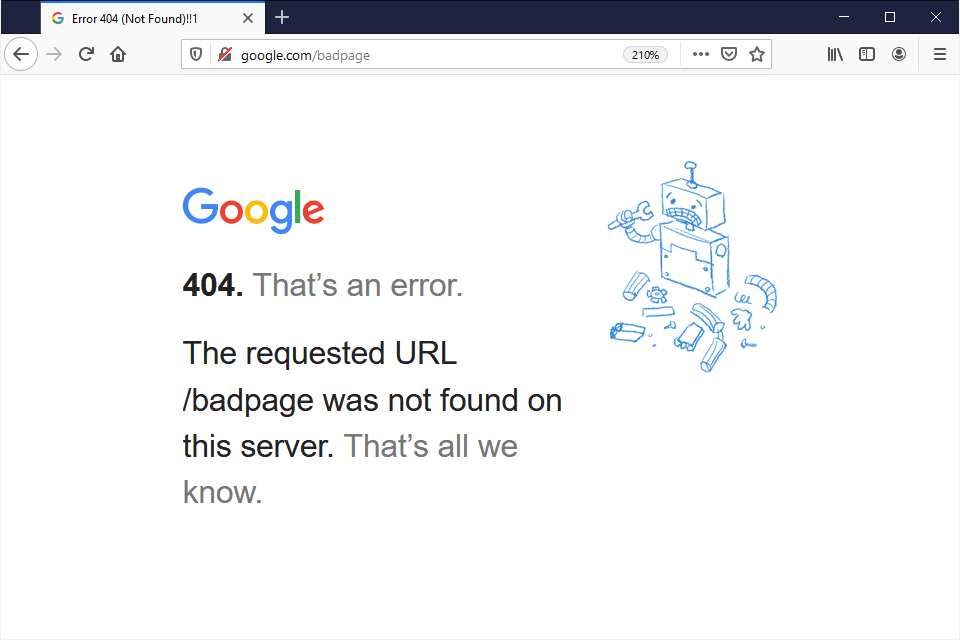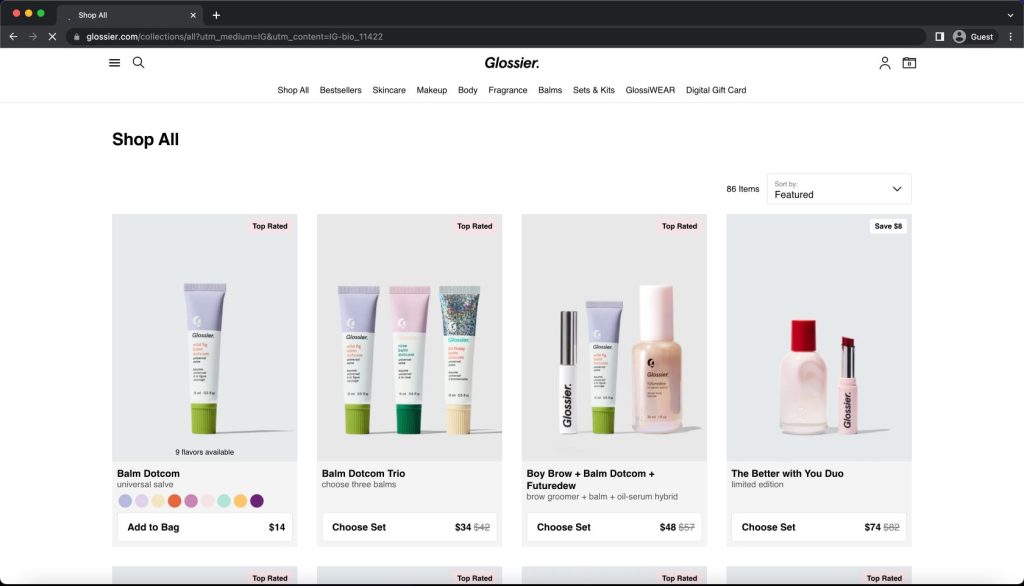There is a lot that goes into a solid eCommerce strategy to make sure your business’s presence is solid and successful. Did you know that link building is one of the most crucial components of every eCommerce website? This is because a strong and diverse backlink profile can help your website rank better in search engines, resulting in increased organic traffic, sales, and revenue.
To that end, it’s evident you need enough knowledge of what link-building is and how to properly do it to find success. Having a clear strategy in place is critical to ensuring that your efforts are effective and efficient. In this article, we’ll give you an overview of link-building for eCommerce and tips on how to develop an effective link-building plan to give you the extra help you needed to take your eCommerce to the next level!
What is link-building?
Let’s start at the beginning. Link-building is the process of getting high-quality links from certain external websites that lead to your own website. Search engines regard these links to be votes of confidence: it’s showing that high-quality websites have enough trust in your site to willingly link back to it. Having a large number of high-quality links can help to boost your website’s search engine rankings. Link building is a continuous process. So It is important to keep acquiring new links while monitoring the quality of your existing ones.
ECommerce link-building
The process of getting high-quality backlinks to your online store from other websites is called eCommerce link building, and it’s exactly the process that can give you a competitive advantage. It’s no secret the eCommerce market is extremely competitive, and businesses must distinguish themselves from competing websites.
A solid link-building plan can help your eCommerce website stand out, boost its search engine exposure, and attract more traffic. A well-optimized website with a solid backlink profile can significantly boost your sales and revenue.
What is link-building in eCommerce?
Link building in eCommerce refers to the process of gaining high-quality links from other eCommerce websites that lead to your own. These links can increase the visibility of your website in search engines and drive more organic traffic. When building links for an eCommerce website, it is essential to prioritize links from high-quality and relevant websites. These are the most valuable links and will have the largest impact on your website’s search engine rankings.
How do I create a link for my eCommerce website?
The following are the basic steps you need to create links for your eCommerce website, including:
Determine your link-building goals: What do you want to achieve with your link-building efforts? Setting your goals will help you focus your efforts and determine the links you need to target.
Conduct a competitor analysis: One of the first steps in developing a link-building plan for your eCommerce website is to do competitor backlink research. This includes examining your top competitors’ backlink profiles to determine which websites are linked to them and what types of links they are getting.
Create high-quality content: The crucial aspect of building high-quality backlinks is to provide useful and engaging pieces of content, which will make external websites want to organically link back to your site. Create blog posts, infographics, videos, and other informational content that will interest your target audience and add value to their lives.
Build relationships: Building relationships with other websites in your industry can help you establish yourself as a thought leader. This makes it easier to secure backlinks in the future.
Outreach: Another way to create links for your eCommerce website is to reach out to other websites and ask for a link. All you have to do is contact the webmaster or editor of the website and ask if they would be willing to link to your website.
Guest posting: Guest posting is a method of increasing the number of links to your eCommerce website by writing articles or blog content for other websites. You can include a link to your website in the guest post, which can help drive traffic and improve your website’s exposure in search engines. However, be sure to follow the guest post guidelines to guarantee your content will be published. These guidelines might change depending on the website and owner, so it’s good to research this process beforehand.
Monitor your results: On a regular basis, you need to monitor your backlink profile to evaluate how your link-building activities affect your search engine rankings and website traffic. Then make changes as needed to ensure that your link-building activities produce the desired outcomes. This highly important process will also require a solid understanding of link building and your internal profile, so it would be best for you to do some additional research to make sure you know what you are doing. If you’d like for us to create a more in-depth blog about this topic let us know! You can also reach out to us and let us give you a hand will this whole process.

Link-building strategies for eCommerce
Link building can be a difficult and complicated task, so it’s key to have a concrete strategy in place to make sure your efforts are successful and effective. There are also several link-building strategies available for eCommerce websites. It is essential to select the most relevant and effective techniques for your site.
Here are some of the most common eCommerce link-building strategies we think should be part of the toolbox of every eCommerce owner:
Create valuable content: Developing valuable, shareable content can help you attract links naturally. If your content is high-quality and relevant to your audience, people will be more likely to share it and link to it from their websites. This can help you build a strong online presence and drive more traffic to your eCommerce site. Creating a blog is a great example of this practice. As long as it is relevant and well-written we are sure it will be link-worthy content.

Focus on quality over quantity: An important step in developing a successful backlink strategy is to prioritize quality over quantity. A few high-quality backlinks are preferable to several low-quality ones. Search engines value quality over quantity, so be sure you’re only obtaining links from relevant, authoritative websites in your niche.
Reach out to industry influencers: Another backlink strategy is to reach out to industry influencers and ask for a link. Connect with industry bloggers, influencers, and websites and offer to guest post or contribute quality content in exchange for a link back to your website. This will assist your e-commerce site in reaching a larger audience and increase your internet visibility.

Utilize broken link-building: Broken link-building is a strategy where you look for broken links on websites related to your niche and offer a link to your website as a replacement. This can help you build valuable backlinks while also improving the user experience for visitors to the website you’ve linked to.

Use internal linking: Internal linking is an important aspect of any backlink strategy. By linking to other pages on your website, you can help distribute link equity and increase your website’s overall authority. Make sure you’re linking to high-quality, relevant pages on your site to maximize the benefits of internal linking.
Offer link exchanges: Link exchanges are another effective way to build backlinks for your eCommerce website. Reach out to other eCommerce websites and offer to exchange links. This can help you build valuable backlinks while also improving the user experience for visitors to both websites.


Utilize social media: Social media is a powerful tool for promoting your eCommerce website and building backlinks. Share your content on social media and encourage others to share and link to it. This can help you reach a wider audience and increase your online visibility, driving more traffic and sales to your eCommerce site.
Backlink strategy for eCommerce
Did you know that a link from one website to another is referred to as a “backlink” or an “inbound link”? Well, a properly outlined backlink strategy is essential for the success of any online business and it’s also an essential part of your link-building strategy.
Your plan of action should include:
- Your objectives
- Target audience
- The types of links you want to obtain
Backlinks are critical in determining a website’s rating on search engines such as Google. A significant number of high-quality backlinks to your website indicates to search engines that your site is trustworthy and relevant.
When it comes to developing a backlink strategy for your eCommerce website, it’s important to focus on building high-quality links from authoritative sites in your niche. This means seeking out opportunities to collaborate with other eCommerce businesses and bloggers and creating valuable content.
It’s essential to avoid shady or unethical backlink-building tactics, such as buying links or participating in link schemes, as these can actually harm your search engine rankings. Although link-building doesn’t have to be an impossible task, it does come with a certain difficulty and the necessary knowledge to do it right. If you fall into some negative practices, also known as black hat link-building, you risk being penalized by Google, so it’s highly important to ensure you are doing it right and following Google’s Webmaster Guidelines.
By focusing on building high-quality backlinks, you can create a strong foundation for your eCommerce website and drive more traffic and sales to your site.
Competitor Backlink Analysis
A competitor backlink analysis is when you conduct a detailed and extensive assessment of your top competitor’s backlink profiles. By doing this, eCommerce business owners can gain insights into how to go about their own link-building process. Conducting this analysis will also help find relevant sites you can partner with and link to. To give you an idea, here at Nomadic Advertising before analyzing our clients’ competitors’ backlinks, we first assess our client’s domain authority. This way, we understand where the client’s website stands and know which strategies to implement.
For a basic competitor backlink analysis, you can:
1. Start by knowing who your competitors are
2. Input keywords or phrases relevant to your niche in a search engine like Google
3. Make a list of the relevant sites closely related to your business listed in the search results, as these are your competitors.
4. You can use several tools to perform backlink analysis, like MOZ pro.
To wrap it all up
By this point, we hope you can agree with us on just how necessary it is to have a link-building strategy for your eCommerce website’s success. It not only improves the site’s exposure and rating on search engines, but it also drives traffic and builds trust with potential customers. To develop an effective link-building strategy, concentrate on obtaining high-quality links from relevant and credible domains. You must also continuously create quality material and interact with your audience.
We hope this guide can help you get your link-building strategy going and take your eCommerce website to the next level. We can’t emphasize enough the need to do it right, playing by the rules and taking advantage of only white hat link-building tactics. If after reading our helpful guide you are still unsure of where to being, we would be more than happy to help. At Nomadic Advertising, we have a vast knowledge of SEO best practices and strategies to help you reach your goals. We would love to discuss your specific needs and develop a customized link-building plan to help your business thrive! Reach out and book a FREE 30-minute consultation with us. Let’s work together to make your eCommerce site a success!
Key takeaways
- Link building is a critical component of SEO for eCommerce businesses.
- ECommerce link-building requires a deep understanding of the industry and specific challenges.
- High-quality content is vital to an effective link-building strategy.
- Competitive backlink research can assist you in identifying opportunities and understanding the competitive landscape.
- Backlink building for eCommerce requires an emphasis on quality, relevancy, and value.





